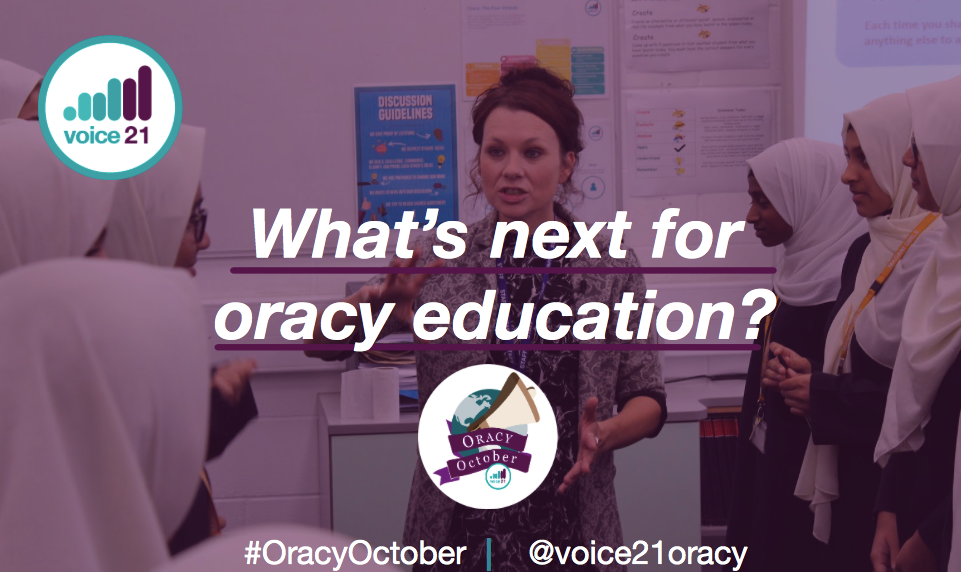Senior leaders in education came together during Oracy October to call for speaking and listening to play a central role in curriculum reform post Covid-19.

For the closing event of Oracy October we were joined by senior leaders from across the education sector who called, in consensus, for a greater focus on oracy in education reforms post Covid-19.
Peter Hyman, Co-founder, Big Education Trust, reflected on the teaching profession’s appetite for change:
“What we’ve seen throughout Oracy October is that teachers and leaders want something better. Covid has made clear that we should aim for more expansive education with oracy at its core”
Roy Blatchford, Founder, National Education Trust, agreed, reflecting on his experience as chair of the Forgotten Third Commission, he said:
“Too many young people in our schools do not achieve a standard GCSE pass at age 16 in English and maths. At the heart of their under-achievement is, I believe, their faltering literacy and their often inarticulacy. As leaders and influencers, we need to do differently with oracy in the early years, in primary and secondary classrooms, in teacher education and, most certainly, in how we examine.”
There was acknowledgement from the panel that oracy needs to be a component of initial teacher training if teachers are to have the skills and the capacity to provide a high quality oracy education in schools. On initial teacher training, Sir Tim Brighouse, Former Chief Commissioner for schools, said:
“Clearly an understanding of oracy and it’s relation to literacy is incredibly important for those who start teaching. So many teachers are now trained on the job – they miss out on academic opportunities to learn about the importance of oracy in relation to literacy.”
Allison Peacock, CEO, Chartered College, went on to argue that by prioritising oracy we also revolutionise school cultures, ensuring they are more democratic and participatory.
“It’s vital for students to be able to engage in dialogue and to share their ideas. When students’ voices are taken seriously, they learn that they have to consider what they say before they say it, because they can see the difference it can make. It changes the way a school works.”
There was also a recognition that to be taken seriously as a reform, oracy needed to be included in a new assessment framework. As Roy Blatchford urged:
“If you genuinely want to shift the system and embed oracy you have to examine it, because that’s what the system recognises. It’s there in the Universities, in vivas, and we miss a trick by not having it in the examination system at 16 plus, 18 plus and 11 plus.”
In their final call to action to educators, the panellists agreed that there was an opportunity for change. Beccy Earnshaw, CEO, Voice 21, closed the event, by remarking that:
“With the current threat to face-to-face teaching and calls to return to teaching in rows, there’s a risk that the dialogic, interactive nature of the classroom diminishes. Prioritising speaking and listening in schools is a prerogative at this time. We know it’s beneficial to students’ academic outcomes across the board and to their wellbeing. We must keep students talking”
© 2024 Voice 21. Voice 21 is a registered charity in England and Wales. Charity number 1152672 | Company no. 08165798